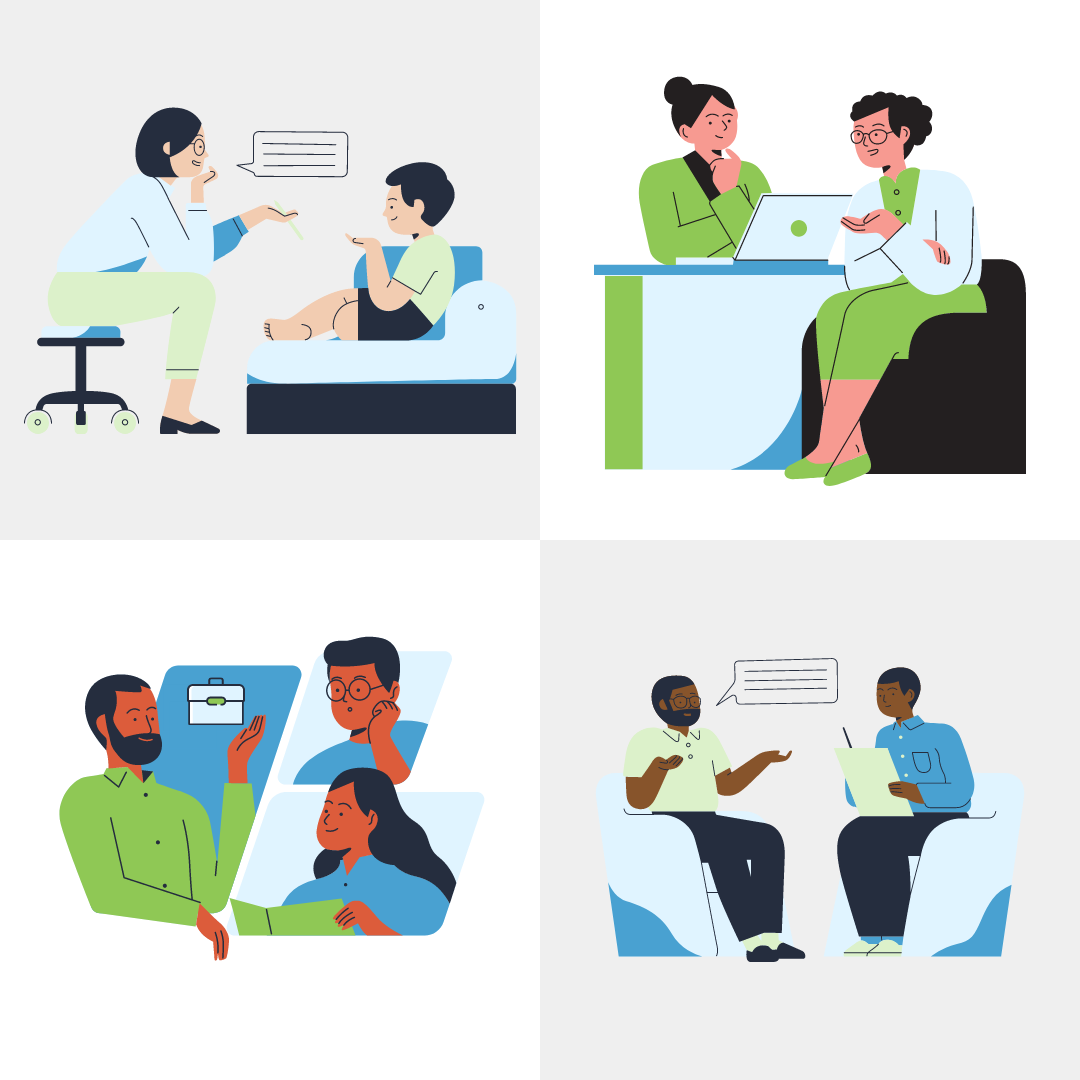2 Hours. Security and Privacy Training for Administrative Staff.
Practical Application of HIPAA and Mental Health Ethics for Admin Staff
Join Roy Huggins LPC NCC and Nicole Kramer, MBA as they provide role based HIPAA foundational training specifically for administrative staff.
no CE credit hours
On demand Self Study
What admin staff really need to know
In this presentation, admin staff will learn HIPAA foundations tailored to the tasks and responsibilities of administrative staff. Instead of wasting time on clinical requirements, this training zooms in on exactly what admin staff need to know.

Who is this event for?
This course is designed for group practice administrative staff members. It is also suitable for practices that consist of 100% in-person, 100% telehealth, or a mixture of in-person and telehealth treatment.
 In-person Practices
In-person Practices
 Hybrid Practices
Hybrid Practices
 Teletherapy Only Practices
Teletherapy Only Practices

I’ve been watching several of your CE programs and, while I’ve always been impressed with your services, I just have to say, your programs are excellently done with production and content and simultaneously warm and accessible. I really appreciate what you do!
Role Based Training
Describe how security and privacy are important to an admin staff member’s role in a mental/behavioral health practice.
Role Based Strategies
Perform releases of information and reception services in a manner that protects client privacy and adheres to practice policies and procedures.
Foundational Training
Describe and apply tech concepts as they apply to an admin staff member’s role in a mental/behavioral health clinic.
Procedural Training
Engage, from the admin staff member’s perspective, with the practice’s policies & procedures around security risk mitigation and contingency planning.
Training is Step 2 of the PCT Way.
Course Details
2 Hours. Security and Privacy Training for Administrative Staff.
Title: Practical Application of HIPAA and Mental Health Ethics for Admin Staff
Authors/Presenters: Roy Huggins, LPC NCC; Liath Dalton
CE Length: No CE
Legal-Ethical CE Hours: No CE
Educational Objectives:
- Describe how security and privacy are important to an admin staff member’s role in a mental/behavioral health practice.
- Perform releases of information and reception services in a manner that protects client privacy and adheres to practice policies and procedures.
- Describe and apply tech concepts as they apply to an admin staff member’s role in a mental/behavioral health clinic.
- Engage, from the admin staff member’s perspective, with the practice’s policies & procedures around security risk mitigation and contingency planning.
Syllabus:
- Getting Into a Security Mindset
- Apply mental health professional ethics of confidentiality, records maintenance, and professional boundaries to support effective therapeutic conditions as an administrator.
- Describe the HIPAA Security and Privacy Rules and apply them to the administrator’s role in confidentiality and record maintenance.
- Identify common behavior mistakes administrators make in their role in office security and privacy and implement best practice HIPAA secure behavioral procedures.
- HIPAA and Client Privacy
- Demonstrate the ability to identify Protected Health Information (PHI).
- Describe under what circumstances it is appropriate to release PHI and identify what PHI is appropriate to disclose.
- List the required information a HIPAA-compliant Release of Information (ROI) form must contain and use form to perform HIPAA-compliant Releases of Information.
- Implement best practice behaviors to properly maintain security when performing a Release of Information.
- Using the Practice’s Tech In the Admin Role
- Determine what methods of secure communication the practice utilizes and assess what communication methods are specific to your role as an administrator.
- Demonstrate knowledge of client’s rights to secure communication under HIPAA and explain to clients the risk of nonsecure communication.
- Prepare for accidental exposure to PHI and demonstrate competency of best practice behaviors of how administrators respond to accidental exposure.
- Utilize the practice’s Bring Your Own Device Policy to determine how to keep your personal electronic device secure and use your device securely.
- Participating in the Practices’ Risk Management Activity
- Demonstrate competency of the practice’s Security Policies and Procedures and assess how the policies and procedures apply to your role as an administrator.
- Assess your role in office security and apply knowledge to support office safety.
- Prepare to use the practice’s contingency plan in the event of a disaster, emergency, or outage and describe your role as an administrator in contingency plan execution.
Meet Our Presenters
Presented by:
Roy Huggins LPC NCC

Roy Huggins, LPC NCC, is a counselor in private practice who also directs Person-Centered Tech. Roy worked as a professional Web developer for 7 years before changing paths and makes it his mission to grow clinicians’ understanding of the Internet and other electronic communications mediums for the future of our practices and our professions.
Roy is an adjunct instructor at the Portland State University Counseling program where he teaches Ethics and is a member of the Zur Institute advisory board. He has acted as a subject matter expert on HIPAA, security, and clinical use of technology for Counseling licensure boards, and both state and national mental health professional organizations. He has co-authored or authored 2 book chapters, and he routinely consults with mental health colleagues on ethical and practical issues surrounding tech in clinical practice. He served for 5 years on the board of the Oregon Mental Health Counselors Association and then the Oregon Counseling Association as the Technology Committee Chair.
He really likes this stuff.

Nicole Kramer, MBA received her MBA in healthcare administration from Western Governors University in 2017. Before healthcare, she worked as a licensed insurance producer where she helped individuals and businesses assess risk and mitigate liability. Her working experience includes medical clinic office management which included overseeing and implementing technology operations and HIPAA compliance.
Program Notices
Accuracy, Utility, and Risks Statement: The contents of this program are based primarily on publications from the federal Department of Health and Human Services, and on the ethics codes of these professional organizations: AAMFT, ACA, APA, NASW, NBCC. Contents are also guided by statements from leadership in those organizations. Some interpretation and analysis presented is made by the presenter, in consultation with knowledgeable colleagues and expert consultants. Statements about applications to technology are according to presenter’s understanding of the technology at the time of the program. The presenter may not know how to apply all principles discussed to every technology type or product. This program discusses strategies for complying with HIPAA and covered ethics codes, and for improving security. It may not include information on all applicable state laws. Misapplication of the materials, or errors in the materials, could result in security problems, data breaches, or non-compliance with applicable laws or ethics codes.
Conflicts of Interest: None.
Commercial Support: None.
This course is subject to our cancellation/refund policy and complaint policy.
